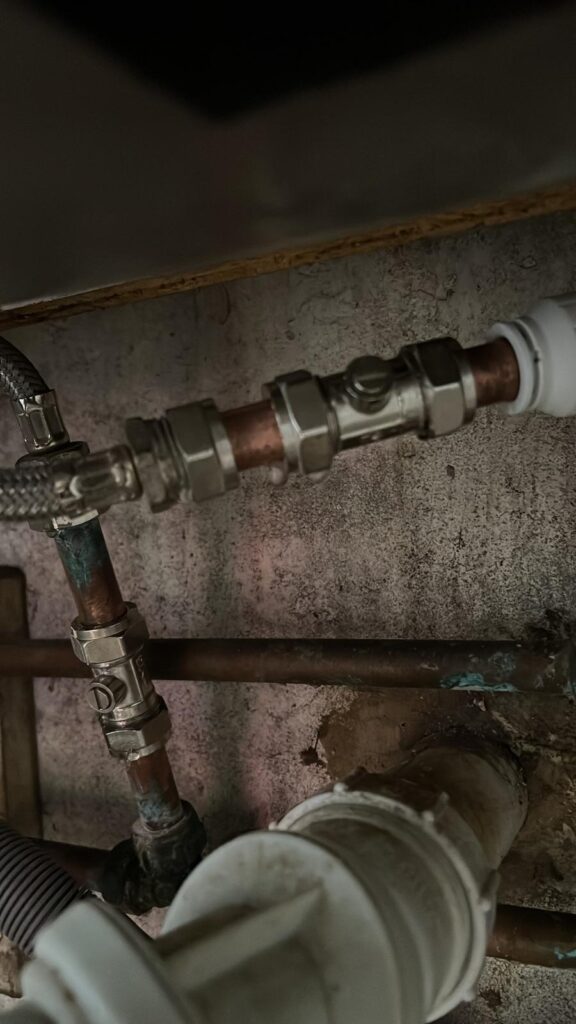What are the Signs of a Gas Leak in My Home?
Gas leaks in your home can pose a serious threat to your safety. It’s essential to be aware of the signs and symptoms of a gas leak to take immediate action if one occurs. In this article, we will discuss the various indicators that can help you identify a gas leak in your home and what steps you should take to ensure your safety.

Understanding the Dangers of Gas Leaks
Before diving into the signs of a gas leak, it’s crucial to understand the potential dangers associated with it. Natural gas is commonly used in households for heating, cooking, and powering appliances. While it’s a convenient source of energy, it can be hazardous when it escapes into the air, as it is highly flammable and can lead to explosions or fires.
Recognizing the Signs
Gas leaks may not always be easy to detect, but there are several warning signs you can watch out for:
1. The Smell of Rotten Eggs
Natural gas is odorless, but gas companies add a chemical called mercaptan to give it a distinctive, unpleasant odor resembling rotten eggs. If you detect this smell in your home, it’s a strong indication of a gas leak.
2. Hissing Sounds
Sometimes, gas leaks can produce hissing or whistling sounds near the gas source, such as a gas pipe or appliance. If you hear unusual noises, don’t ignore them; investigate immediately.
3. Dead or Dying Plants
Indoor plants can be sensitive to gas leaks. If you notice that your houseplants are wilting or dying for no apparent reason, it could be due to a gas leak affecting the oxygen levels in your home.
4. Physical Symptoms
Gas leaks can lead to various physical symptoms in occupants of the house, such as headaches, dizziness, nausea, and fatigue. If you experience these symptoms and they improve when you leave your home, it’s a cause for concern.
What to Do if You Suspect a Gas Leak
If you suspect a gas leak in your home, follow these steps immediately:
1. Evacuate
Ensure the safety of everyone in your household by evacuating the premises. Leave the doors and windows open to allow the gas to dissipate.
2. Do Not Use Electronic Devices
Avoid using any electronic devices, including phones or light switches, as they can create sparks that may ignite the gas.
3. Turn Off the Gas Supply
Locate the gas meter outside your home and shut off the gas supply if it is safe to do so. Only a professional plumber Bristol should turn it back on.
4. Call Emergency Services
Dial 911 or your local emergency number to report the gas leak. Leave the area and wait for emergency responders to arrive.
Prevention is Key
While knowing the signs of a gas leak is crucial, prevention is equally important. Here are some preventive measures to reduce the risk of gas leaks:
1. Regular Maintenance
Schedule regular maintenance for your gas appliances and heating systems to ensure they are in good working condition.
2. Install Gas Detectors
Consider installing gas detectors in your home that can alert you to gas leaks before they become a major problem.
3. Proper Ventilation
Ensure proper ventilation in areas where gas appliances are used to prevent the buildup of gas fumes.
Gas leaks are a serious safety hazard that can have catastrophic consequences if left unaddressed. Being aware of the signs of a gas leak and knowing how to respond is essential for protecting yourself and your loved ones. Remember, safety should always be your top priority.
FAQs
1. Can I use my cell phone if I suspect a gas leak?
It’s best to avoid using your cell phone or any electronic device when you suspect a gas leak, as they can create sparks that may ignite the gas. Evacuate your home and call for help from a safe location.
2. What should I do if I can’t smell the rotten egg odor?
Not everyone can detect the odor of mercaptan used in natural gas. If you suspect a gas leak due to other signs or symptoms, take immediate action by evacuating and calling emergency services.
3. Are gas leaks common?
Gas leaks are not extremely common, but they can happen. Regular maintenance of gas appliances and proper safety precautions can reduce the risk significantly.
4. Can I use a fire extinguisher to control a gas leak?
No, using a fire extinguisher to control a gas leak is not recommended. It’s best to evacuate and let the professionals handle the situation.
5. How can I find a qualified technician to inspect my gas appliances?
Contact your local gas company or a licensed HVAC technician to inspect your gas appliances and heating systems regularly to ensure their safety and proper functioning.
